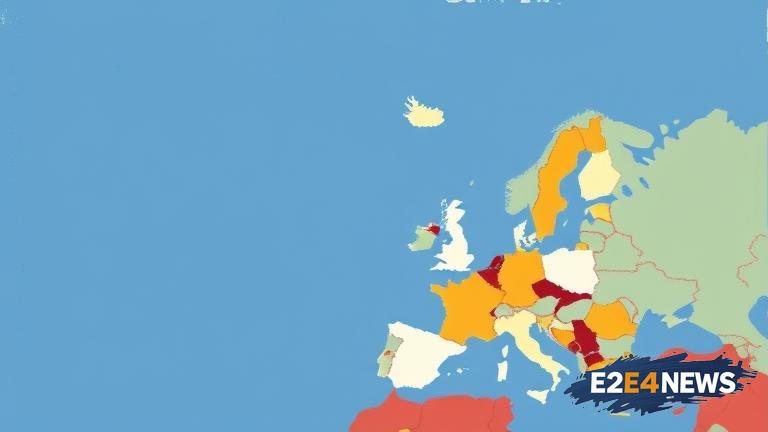The European venture capital (VC) investment landscape has witnessed a slight decline in recent years, according to a report. Despite this downturn, the region’s VC ecosystem remains vibrant, with a diverse range of funding opportunities available to startups and scale-ups. The report highlights that the decline in VC investment is largely attributed to a decrease in mega-deals, which are investments exceeding $100 million. However, the number of smaller deals has increased, indicating a growing interest in early-stage companies. The European VC market has historically been driven by investments in the technology sector, with a focus on areas such as fintech, healthtech, and sustainability. The region’s strong entrepreneurial spirit, coupled with government support and a highly skilled workforce, has created a fertile ground for startups to thrive. Nevertheless, the VC investment decline has raised concerns among industry stakeholders, who are calling for increased support and funding for early-stage companies. To address this issue, several European countries have launched initiatives to boost VC investment, such as tax incentives and funding programs. The report also notes that the European VC market is becoming increasingly fragmented, with a growing number of smaller, specialized VC firms emerging. These firms are focusing on specific sectors or regions, providing more targeted support to startups. In addition, the rise of corporate venture arms has also contributed to the diversification of the European VC landscape. As the European VC market continues to evolve, it is likely that we will see a growing emphasis on sustainability and social impact investing. This trend is driven by the increasing awareness of environmental and social issues, as well as the recognition of the importance of responsible investing. The report concludes that while the European VC investment decline is a concern, the region’s VC ecosystem remains resilient and adaptable. With the right support and funding, European startups and scale-ups are well-positioned to drive innovation and growth in the years to come. The European VC market is expected to continue to play a vital role in shaping the region’s economic future, with a focus on creating jobs, driving innovation, and promoting sustainable growth. Furthermore, the report highlights the importance of international collaboration and knowledge sharing in the VC industry, as well as the need for more diverse and inclusive investment practices. The European VC market is characterized by a high degree of diversity, with a wide range of industries and sectors represented. This diversity is a key strength of the market, as it allows for the exchange of ideas and expertise across different fields. In conclusion, while the European VC investment decline is a challenge, it also presents an opportunity for the region’s VC ecosystem to adapt and evolve. By providing more targeted support to early-stage companies, promoting sustainability and social impact investing, and fostering international collaboration, the European VC market can continue to thrive and drive growth in the years to come. The report’s findings have significant implications for policymakers, investors, and entrepreneurs, who must work together to create a supportive environment for startups and scale-ups. Ultimately, the future of the European VC market looks bright, with a growing number of innovative companies and a increasing amount of funding available to support their growth.
